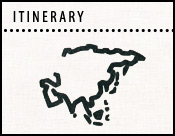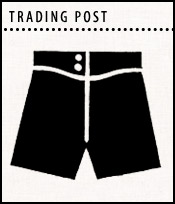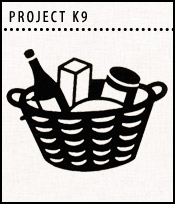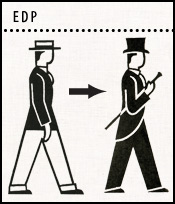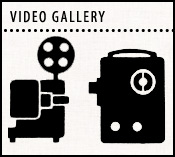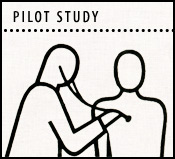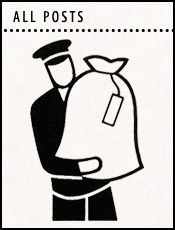And then we arrived in Almaty. It was the morning and the sun was blazing outside the window of our train car. Scott and I hustled to collect our things and grab the Speed TRs to get of the train before it headed to its next station.

We were not sure exactly where the station that we had arrived in was relative to the rest of the city, and knowing that there were very few cheap hotels that were authorized to admit foreigners, we figured it would be good to consult a map. The easiest to get to and most useful map we could think of was the one in the Lonely Planet PDFs on Scott’s computer. Unfortunately, his computer had been drained down to the last drop the night before, so we needed some electricity. Thus began our journey around the station looking for an outlet. We found one, upstairs, behind the lip of what looked like an out-of-service wine bar concept.
We plugged in and were just booting up when we were apprehended by the railway police. They explained to me in Russian that what we had just done was in violation of the code of the railways, and therefore against Kazakh law. The police officer looked very sternly at the both of us, made a clicking sound in the back of his throat, and demanded to see our papers. We produced them.
“Not registered yet, I see,†he muttered in Russian. “You have only two days left to do your registration…†He reluctantly handed back our documents and gruffly directed us to follow him to the elevator. As we headed over, he also pointed out that we had used the escalator to move our bikes, which it turns out is also against the code. I apologized to him a few more times. He brought us to the center of the railway station’s lobby and told us to wait there for him, which we did.
Then some more time went by, and he was nowhere to be seen. We scanned all around the station… where was he? Finally, we decided to just make a run for it, and walked our bikes out to the exterior of the station, asked another security guard for directions into town, quickly thanked him and raced off into the traffic.

We stopped for lunch at a pizza place we spotted on the way, not because we necessarily wanted pizza, but because we couldn’t find a Kazakh restaurant. They’d been easier to find in Tashkent! While at the restaurant, Scott plugged in his computer to charge and got on the phone with potential hotels. The pizza was okay, and the coffee, I think, was a little better than okay, but never trust an addict getting his first dose in a while.

As we munched pizza and mayonnaisey Russian salads, we commented on how much less of a food culture there was her than in the Uz. In Uzbekistan, there were amazing restaurants everywhere with very unique food. Here, on the other hand, it seemed as though the locals were looking to other cultures to tell them what to eat. Perhaps this was because the culture was nomadic. The Uzbeks had built great cities and had farmed, forged a civilization, and thrived in a sedentary way for the past 5,000 years. The Kazakhs on the other hand had been nomadic until the Russians came a few hundred years ago and began to trap them in cities, forcing them to consider things like restaurants.
All this discussion of the differences between Central Asian cultures was interesting, but we had some work to do. We wheeled hard into the city, and began stopping into hotels and checking the prices. One of the first that we found was actually a Chinese business hotel. The place looked amazing, and Scott was able to speak Chinese with them, but even with brotherhood pricing, it was a far cry from the normal Chinese business value. So we wheeled on.
Soon we were in a dense market, and though all our investigations of maps and questioning of the locals had brought us here, there seemed no way, try as we might, to actually locate the place. At our wits end, and beginning to worry that we would not be able to find a hotel in time to register ourselves, we were suddenly accosted by two young women. “We are studying English,†they said. “We heard you talking and wanted to know if you needed any help.â€
Thank goodness. Not only did they know of the hotel we were looking for, but they led us right to the door, commenting as we walked there that is was “the cheapest place to stay in all of Almaty that would not steal from your room.”
Great. We thanked them profusely and checked in. We explained our predicament registration-wise to the front desk as follows: We had entered the Kazakh Republic on a Friday, too late in the day to register in Shymkent. Saturday and Sunday they had been closed, and now we were arriving on a Monday here, with tomorrow being the last day that we were eligible to register. The woman at the front desk commented that usually the registration takes a day or two, so if we were to have any hope of avoiding the $100 fine, we had better head out tout de suite.
And so we did, armed with a few signed and stamped documents that the hotel had prepared for us and a little map leading to the OVIR. Unfortunately, the OVIR proved much harder to find than one might hope. As we continued to strike out on finding the place, we began to walk into more and more random businesses asking for help. A certain travel agency wrote a name, a phone number and some Russian words I did not understand on a yellow scrap of paper. I literally put this in my back pocket, hoping that we could find them without having to negotiate a miscommunication ridden phone conversation with someone whose relationship to the OVIR was in no way clear due to my poor understanding of Russian.
So we kept wheeling around the gently sloping streets of Almaty for hours, feeling the OVIR was always just around the corner, but becoming increasingly worried.

I say gently sloping because the entire city of Almaty is on a hillside and gently slopes down to the north and up to the south — very confusing I know.
We were at our wit’s end when we asked a particularly fabulous looking gentleman in the street for directions.

He was quite cordial with us, and immediately snapped to action. He did not know where the OVIR was, but he was willing to wander into a nearby hair salon, whipping the door open like a western gunslinger, and to get on the phone with the woman, Katya, whose number had been given to us by the travel agent whose office we’d stopped into earlier.
And so we began the process of hailing a cab. Like in Uzbekistan and Russia, all one needs to do is stick out one’s hand, except that here in this city all the cars were actually quite nice, many of them were luxury brands, and it would not be uncommon to actually get a ride in a BMW or Lexus SUV as one was flagging down a cab.
The downside of this fact, we soon learned, is that many of them are unwilling to put folding bicycles into the back seats of their cabs, and that it’s much more expensive. So it took us quite some time to find a cab, and even when we did find one, it was only willing to take us back to the hotel to drop off our bikes and not all the way out to the OVIR… or at least we thought we were going to the OVIR… until I asked our new friend.
“Where are we going?†I asked in Russian. You see, he spoke no English.
“Transavia,†he replied.

I had no idea where Transavia was, but we began piling our cycles into the cab. As we were doing so, a very animated fellow showed up on something that looked not unlike a folding bicycle. “It’s my new invention!†he called out to us, and began stammering in bits of English and Russian. I was interested, mostly because the man was obviously mad, but was forced to apologize, saying that we were in a bit of a hurry. We piled into the cab and sped off.  Today seemed to get only stranger and stranger.

With bikes safely back at the hotel, the cab dropped us off in a giant towering development of mixed residential and corporate office space. All of our cell phones were out of batteries, so I ran over to a convenience store to buy us all some more credit for our SIM cards.

And after a quick call we found the place.
Inside the building it was stark and white and very clean. Desks were lined up against each wall with strikingly similar looking blond women behind them, all typing away on computers. The entire room looked up at us as we came in.
Our friend asked for Katya, which I remembered was the name on the card, and a beautiful woman came out from behind a door. I did my best to explain our situation to her, and our new friend chimed in where need be. Eventually she understood and told us not to worry, that she could help. And so we gave her our passports and left.
It felt great. Another problem vanquished due to AsiaWheeling’s carefully honed radar telling us when to and when not to trust strangers!
Feeling great, we asked our new friend if he might want to go out for a coffee or something on us. He seemed interested. He began to hail a cab, but we explained that we like to walk, and if he was okay with it we’d prefer to move a little.

He seemed mildly pouty, but agreed. And we began to walk on, chatting. He explained to us how he worked as a hair dresser, how he had just saved up enough money to take out a lease on a new Lexus, telling us about his apartment, pointing out the handsome building in the distance. It really sounded like this guy was coming up in the world of men’s hair in Almaty… who knew? He explained to us as we walked that Scott’s shirt was too dirty. It’s fine, we assured him, but he pressed on. “It’s too dirty for my taste,†he said. “I’d like you to get a new one.â€
Considering he’d just saved our asses and all, we decided to humor him and we followed the guy into the Silkway City, a posh Almaty mall chain, where we purchased for Scott a tee-shirt with a giant “I love Kazakhstan†on the front.

With that done, we headed out in search of coffee, but ended up instead at what our friend claimed was his favorite place, a joint called the Café Bar Excellent.

It was perhaps 6:30 pm and the place was almost completely empty. Our new friend decided to take bishop ordering for the table some pitchers of beer and a few plates of meat and French fries. It was, we were to learn, a Turkish restaurant, which is the most popular type of restaurant in Kazakh cities. I am not sure where the Turks get all this brand equity, but trust me, at least in Kazakhstan, they have it in spades.

This was fine with us, we were hungry anyway, and so we dug in, and enjoyed the beer. It was Heineken, the expensive stuff, not nearly as tasty as Shymkenskoye but as it is always, consistently not bad.
Communicating with this guy was tough. He spoke no English whatsoever and had very little patience for my poor Russian. But struggle on we did, into the evening, continuing to eat and chat as the sun ducked below the horizon. Â When the bill came, our friend made no pretense of paying a cent, but we figured he had helped us today, and so we paid and got ready to leave, explaining to him that we had a lot of work to do.
He then began to get very disgruntled. “Don’t leave!†he pleaded with us. “Why won’t you stay longer with me?†We attempted to explain that we were tired, that we had lots of correspondence to write for you, dear reader, but he was not having it. He was becoming quite upset, and putting his foot down. “No! Stay!â€
He then began to explain to us about his friends who he wanted us to meet. He told us about all the beautiful women who would be joining us, along with a photographer from (presumably Russian) Vogue.
Finally, in an exhausted last ditch effort, we were able to leave, but only promising that we would meet back up with him when we were done working. As we parted ways he demanded cab money from us (and quite a lot of money at that… twice as much as our cab fare) to get back to his place. This we gave him as well. As we piled into the cab, I turned back to Scott, letting him know that I was too exhausted by this character to do any more hanging out tonight. “My recommendation is that we just screen his calls,†I said.
Scott felt obliged to spend more time with the guy, and figured it may not be all that bad. “I’d like to meet this photographer from Vogue,†he said. And so it was that I went off to sleep, and Scott headed out to reencounter our fabulous friend…
………………………..
As Woody settled into bed, my phone rang at 10:00 pm on the dot when our purple-shirted and elaborately coiffed friend said he would be calling. Â He was outside, and so I descended the stairs and spilled onto the filthy, poorly lit street surrounded by deserted market stalls.
There was no Lexus in sight, so I moved further into the street to peer in both directions. Â Just then, a station wagon pulled up and dispensed Mr. Fabulous. Â Now began the first extended Russian language practice session I had on my own.
After greetings, I asked him, “Where are you friends?” Â He replied with something like “Oh..friends. Â Astana. Â They’re all in Astana, darling. Â Yes, Astana.”
Oh, okay. Â Well, do you have none here? Â Who are we meeting?
I was told to hush, and decided to be patient and give him the benefit of the doubt. Â We walked to find a place to chill. Â Oddly enough, despite passing numerous attractive and lively options, we found ourselves back at the overpriced and not-so-great Cafe Bar Excellent.

I decided to bide my time and converse with this fellow as much as possible. Â After rudimentary English and Russian lessons, I asked again, “Are you friends coming? Â Are we going to meet them?” Â He seemed to be assuring me that there would be some further socializing while periodically whipping out his mobile phone and firing off text messages.
Time passed, and we ordered another drink. Â I was starting to grow impatient and suspicious, as I could barely think of enough things to mime or express in completely mutilated Russian. Â He certainly wasn’t talking about much but seemed to be enjoying himself.
After hours passed, I motioned that we should be leaving, and if we were going to meet someone else we could find another spot. Â We asked for the bill, and a waitress, who probably wondered who this odd couple was, brought it to the table. Â And there it sat. Â I waited for Mr. Fabulous to make a movement. Â Maybe toward his wallet or maybe toward the bill. Â He did not stir.
I brought it up in pantomime, motioning toward the check, suggesting we go Dutch, or do it the German way as the Turkish say. Â He had no money, it seemed. Â Exasperated, I paid and got up.
We strolled down the street for a bit and I signaled that I’d be heading home to catch some shuteye. Â He brought up his friends once more, and not understanding what he was trying to communicate, I followed him into a park and sat on a bench as he made a call on his phone. Â After the phone call, he began to make moves. Â Big moves. Â And I was not about to make out with a Kazakh guy in a park in the middle of the night.
“Hey man,” I said in Russian, “I like girls.” Literally translated, I told him, “I have once reveled in a woman.”  It was all I could say.
There were no friends. Â He spoke no English. Â No photographer from Vogue. Â No effort to pay bill. Â Where the hell was I?
Had my people sensor somehow gotten warped? Â His fragility and helpful nature seemed to suggest that he was not one to be a predator, though he’d been weaving complex webs. Â “I’ve got to get out of here,” I resolved.
“Wait!” he exclaimed, and communicated that he had no money for a cab home. Â How did he get here in the first place, I wondered? Â “Look,” I told him in English, hoping my tone would permeate any language barriers, “I’m not paying your cab fare. Â You relied on us for dinner, for cabs, for an entire evening, and you lied to us. Â Find your own way home.”
Was this the right thing to do? Or was I being shallow?  Tough love isn’t easy. It’s tough (as the name implies).  I had never said this kind of thing to anyone.  But something compelled me to simultaneously cut my losses and teach this guy a lesson.
So I began walking. Â Not wanting to take cab myself for the couple of blocks home, I strolled north down Almaty’s slope back toward the hotel.
As I turned the corner onto the street of our hotel, a police car pulled around me from behind and three officers alighted from the vehicle.  I was certainly the only thing they were interested in.
“Documenti,” they signaled, “papers.” Â I gulped.
My passport was at Transavia for registration, so I produced a photocopy and records of my flight and visa to the country.  This seemed not to interest them.  I was told to empty my pockets on their patrol car.  Keys, wallet, cell phone, some random receipts now laid on their trunk.
“Have you been drinking?” the cop signaled, placing two fingers on his neck, as is the Russian custom.  “A little”, I replied.
“Narcotics? Â Drugs?”
“No, none, not at all.”
“Your shoes. Â Take off your shoes. Â We need to check them. Â Unlace them.”
I bent down to untie the shoes, and midway through I was instructed to stop. Â “Get out of here,” they motioned. Â I put my possessions back in my pockets. Â And I was free.
Walking away, I checked my wallet. Â It was lighter. Â Not the kind of lighter when Kazakh Tenge is missing. Â The kind of lighter when the proud greenbacks of Barack Obama have been embezzled and siphoned into the hands of Almaty’s finest.
And right then, at the entrance to our hotel, two men with beers in hand seemed thrilled to see me.  They cheered “I love Kazakhstan,” and insisted we take a photo.  So here I am, in Almaty, at the end of one of the weirdest days of my life, loving Kazakhstan.


![]()

































































































































